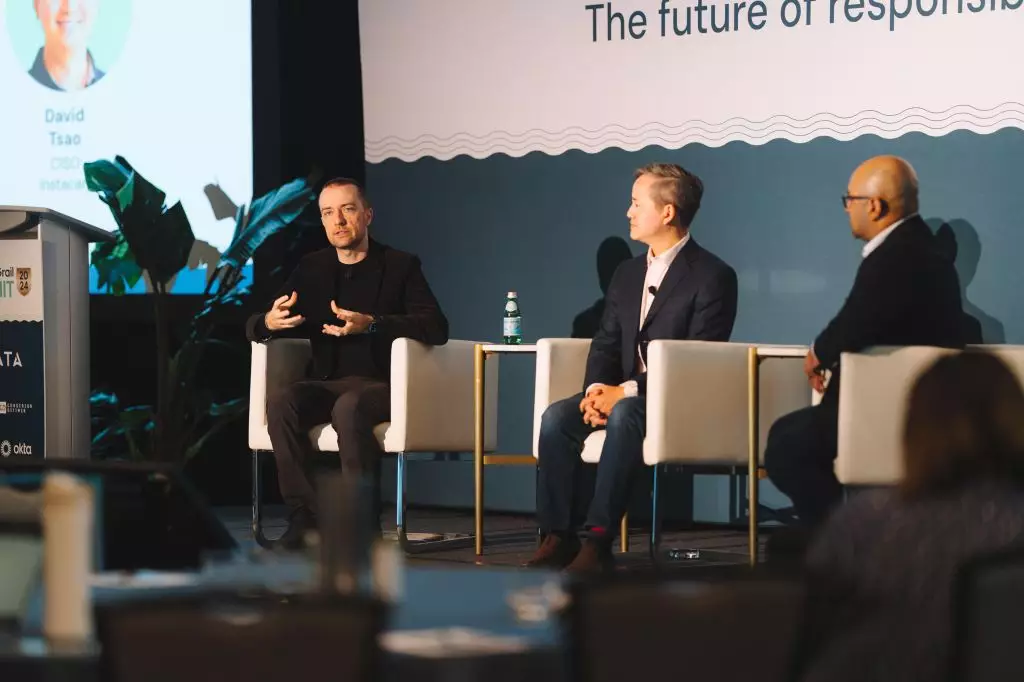At the recent DataGrail Summit 2024, industry leaders gathered to discuss the rapidly advancing risks associated with artificial intelligence. Dave Zhou, CISO of Instacart, and Jason Clinton, CISO of Anthropic, emphasized the urgent need for robust security measures to keep pace with the exponential growth of AI capabilities. The panel, moderated by VentureBeat’s editorial director Michael Nunez, highlighted both the thrilling potential and the existential threats posed by the latest generation of AI models.
The Relentless Acceleration of AI Power
Jason Clinton, operating at the forefront of AI development at Anthropic, warned of the rapid growth pushing AI capabilities into uncharted territory. He noted the 4x year-over-year increase in the total amount of compute going into training AI models since the perceptron came out in 1957. This exponential curve is proving to be a very difficult thing to plan for, as AI technologies evolve at an unprecedented rate.
Dave Zhou, overseeing the security of vast amounts of sensitive customer data, confronts the unpredictable nature of large language models (LLMs) on a daily basis. He pointed out the challenges of aligning models to only answer things in a certain way, while also acknowledging the potential risks associated with AI-generated content. Zhou shared a concerning example of how errors in AI-generated content could erode consumer trust or, in extreme cases, pose actual harm.
Imbalance in Investment
Throughout the summit, speakers highlighted that the rapid deployment of AI technologies has outpaced the development of critical security frameworks. Both Clinton and Zhou called for companies to invest as heavily in AI safety systems as they do in the AI technologies themselves. The imbalance in investment poses a significant risk, as companies must balance their focus on innovation with the need to minimize risks associated with AI technologies.
As AI systems become more deeply integrated into critical business processes, the potential for catastrophic failure grows. Clinton painted a future where AI agents could take on complex tasks autonomously, raising concerns about AI-driven decisions with far-reaching consequences. The message was clear: companies must prepare for the future of AI governance to navigate the treacherous waters ahead.
The warnings issued at the DataGrail Summit serve as a stark reminder of the risks associated with the rapid advancement of artificial intelligence. As companies race to harness the power of AI, they must also confront the sobering reality that this power comes with unprecedented risks. CEOs and board members must take heed of these warnings and ensure that their organizations are not just riding the wave of AI innovation but are prepared to address the challenges that lie ahead. The future of AI governance will be crucial in ensuring that intelligence is leveraged for innovation while also prioritizing safety and security in an increasingly complex technological landscape.

